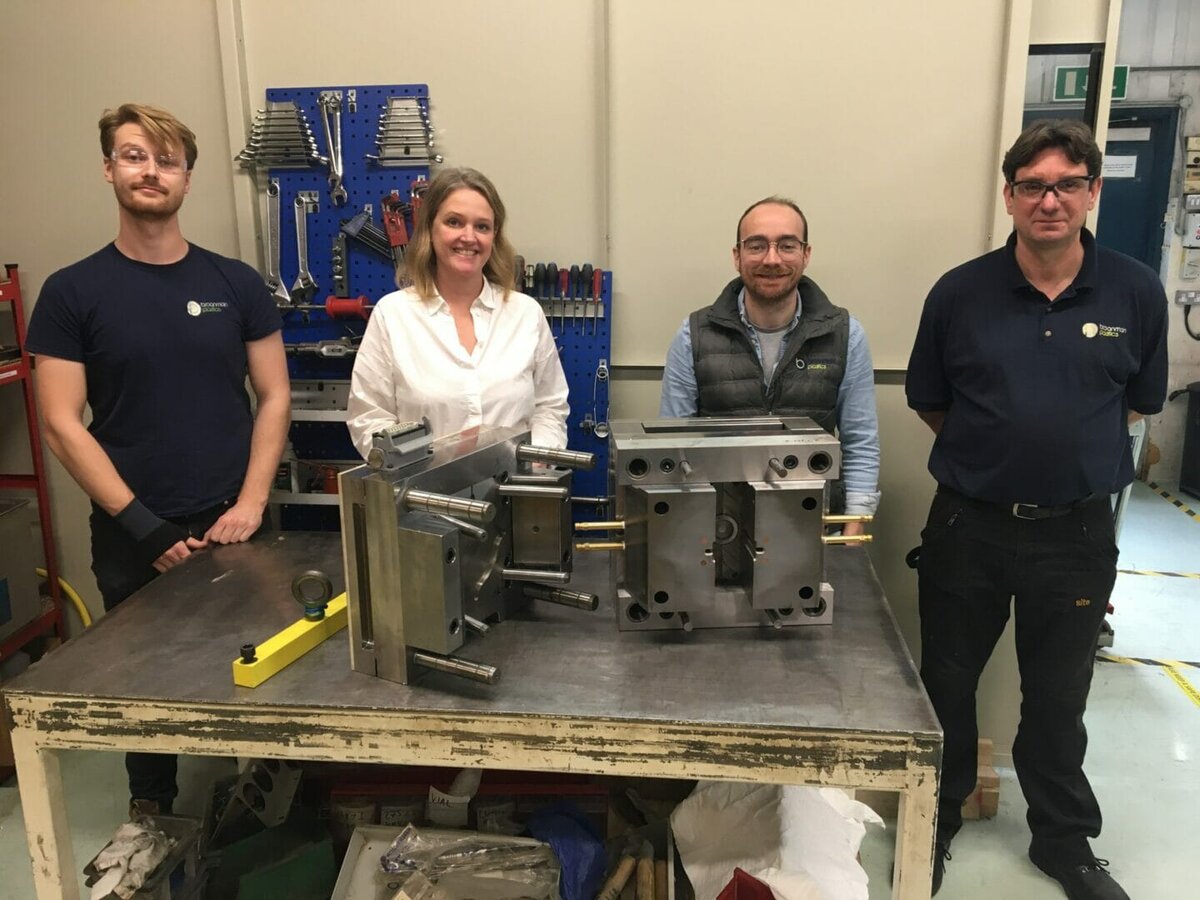Using its newly equipped state-of-the-art tool room, the Broanmain Plastics team has developed a true cross-departmental collaborative approach to tool design and delivery. Led by Kamil Stec and Thomas Catinat, the team now has capacity to complete tool design and delivery projects – engineering, crafting and testing – in house. The most recent project saw the completion of a single cavity slide action tool with a hot tip – which sees the company manufacturing the utility filter components in house for a leading UK OEM.
Flying the flag for British engineering, tool room manager Kamil Stec headed the project, designing the drawings, sourcing over 200 individual tool components, and assembling the steel tool to the highest precision. Automating a previously time consuming and labour-intensive manual moulding process, the benefits of using a moulder with the in-house tooling expertise are threefold highlights Kamil. “When it comes to optimising the design, it is extremely useful to understand the moulding process and the nuances of the machine that the tool will be running on.”
In this instance, Kamil was able to call upon the expertise of operations manager Thomas Catinat. With toolmaking being such an in-demand, highly skilled profession, having access to this all-round knowledge can be critical to the project’s success and moulding productivity and quality.
“It’s also beneficial for creating test samples, especially if you have to re-run tests before the tool is signed off,” adds Kamil. Rather than shipping the tool and booking a slot with an external moulder, Kamil ran samples and got the approval parts in the same day. “It is so much faster as well as making it easier to modify and service the tooling and run samples again.” Kamil estimates that this to-and-fro process can equate to several lost production weeks.
For the moulding samples, Dorking team member Andy Budd was able to showcase his newly advanced testing skills. Having recently completed the Advanced Injection Moulding course at the Sumitomo (SHI) Demag Academy, Andy performed his first unsupervised tool trial with confidence and no glitches.
From the clients’ perspective, having a single point of contact and no language barriers is equally advantageous. Kamil explains: “Sitting face to face with any customer and being able to show the tool and sample components means that we can usually deduce and correct any issues on-site within 24 hours.”
De-risking tooling projects is also at the forefront of UK manufacturers mind right now. Trade wars, closed borders, shipment delays, ongoing tariff negotiations, currency fluctuations and Brexit are just a number of factors prompting UK OEMs to review supply chain vulnerabilities. In plastic processing, tooling is a critical part of this chain. Managing Director Jo Davis comments: “For some time now there’s been a generational gap and concern that toolmaking in the UK is a dying art with the most skilled heading for retirement. But thanks to the concerted effort being made within the industry, including the GTMA and Make UK, the tide is turning. One positive to come from the current COVID crisis is it has renewed the focus on future engineering skills and workforce resilience.”
Rather than outsourcing toolmaking to third parties, Broanmain has observed the shift back to working with a supplier with all the skills close at hand. Niche manufacturing, including toolmaking tends to benefit from this onshore approach. Requiring highly technical capabilities, many of UK polymer moulders have morphed into this space.
Like many toolmakers, Kamil learned his trade taking the practical route repairing, maintaining and modifying tools while completing a three year apprenticeship in Mechanical and Manufacturing Engineering (Level 3) at Broanmain. A year after completion he is running the company’s toolshop and supervising Broanmain’s newest apprentice.





